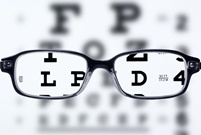 There is no denying our industry is changing rapidly, and it’s not about to slow down. Combined with disruptive advances in technology and evolving consumer expectations, we’re seeing consumer-driven health care emerge. Take, for example, the fact that employees now spend more than nine hours a day on digital devices.
There is no denying our industry is changing rapidly, and it’s not about to slow down. Combined with disruptive advances in technology and evolving consumer expectations, we’re seeing consumer-driven health care emerge. Take, for example, the fact that employees now spend more than nine hours a day on digital devices.
There’s no doubt that all this screen time takes a toll.
- Device screens expose users to blue light. It’s the light of the day and helps us wake up and regulate our sleep/wake cycle.
- Research suggests blue light may lead to eye strain and fatigue. Digital eye strain is the physical eye discomfort felt by many individuals after two or more hours in front of a digital screen.
- In fact, digital eye strain has surpassed carpal tunnel syndrome and tendonitis as the leading computer-related workplace injury in America1.
Employees are demanding visibility into health care costs and transparency in the options available so they can take control of their own health. Consumers are more knowledgeable and sensitive to cost, and as a result becoming very selective about their care.
| Technology Exposure | Spends more than nine hours a day on digital devices |
| Millennials | 2 in 5 |
| Gen-Xers | 1 in 3 |
| Baby Boomers | 1 in 4 |
Lack of preventive care
Preventive screenings are a crucial piece of overall health and wellness. In fact, the largest investment companies make to detect illnesses and manage medical costs is in their health plan. But if employees don’t take advantage of preventive care, this investment will not pay off. Only one out of 10 employees get the preventive screenings you’d expect during an annual medical visit2.
It’s a big lost opportunity for organizations that are looking for a low-cost, high-engagement option to drive employee wellness.
How a vision plan can help
The good news is that the right vision plan can help your employees build a bigger safety net to catch chronic conditions early. It all starts with education on the importance of an eye exam.
Eye exams are preventive screenings that most people seek out as a noninvasive, inexpensive way to check in on their health; it’s a win-win for employers and employees.
- A comprehensive eye exam can reveal health conditions even if the person being examined doesn’t have symptoms.
- The eyes are the only unobtrusive place in a person’s body with a clear view of their blood vessels.
- And, an eye exam provides an opportunity to learn about the many options available to take control of their health and how to protect their vision.
By screening for conditions like diabetes, high blood pressure, and high cholesterol during eye exams, optometrists are often the ones to detect early signs of these conditions and put the patient on a quicker path to managing the condition. In a study conducted in partnership with Human Capital Management Services (HCMS), VSP doctors were the first to detect signs of3:
- Diabetes – 34 percent of the time
- Hypertension – 39 percent of the time
- High cholesterol – 62 percent of the time
By Pat McClelland, Originally Published By United Benefit Advisors
